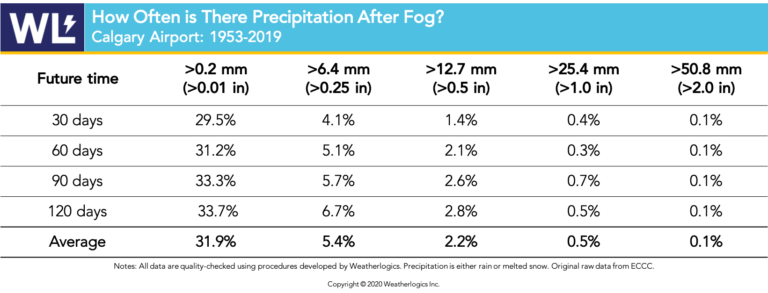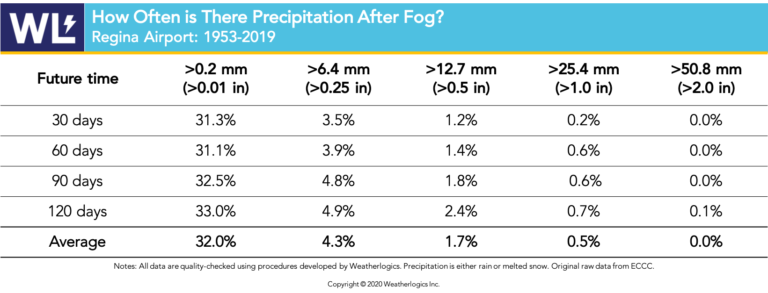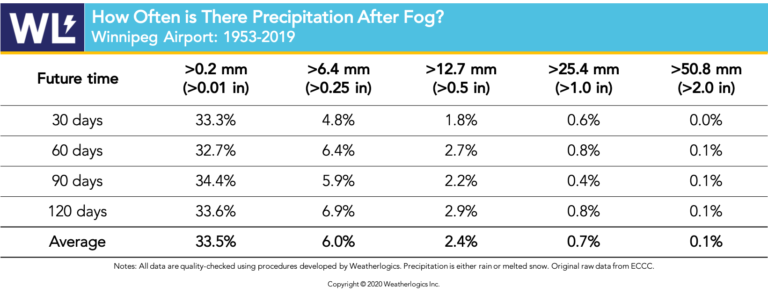Every year many people come up to us and ask this question: Is it true that it always rains 90 days after fog? To the meteorologist, this is an unexpected question, because nowhere does such a formula appear in any textbook. We usually reply no, albeit in a more polite fashion, although has anyone ever checked?
This is actually a very easy thing to check. We simply identify all days with fog, then check how many had rain 90 days later. However, it’s actually not so simple. For one, the 90-day rule varies by person. Some say 60 days, some say 80-90 days, some say 90-100 days, so which is it? Also, what is considered rain? Most people interpret this to mean a significant storm, but what qualifies? Is 10 mm a big storm, or 20 mm, or 50 mm? Or does this mean any amount of rain? The uncertainty in the criteria is probably part of the reason this formula seems to work.
We put this to the test for three major cities on the Prairies: Winnipeg, Regina, and Calgary. And since there’s uncertainty in the criteria, we checked at 30, 60, 90, and 120 day intervals. We also checked how often there was any rain (>0.01” / 0.2 mm) more than ¼” (6.4 mm), ½” (12.7 mm), 1” (25.4 mm), and 2” (50.8 mm) of rain. The results may surprise you.
The probability of any rain was obviously the highest, but it was still under 40% in all cases. But as you get into the significant rain categories, the numbers drop off significantly. By the time you get to 2”, the number of times it worked is well under 1% – in some cases it has never worked!
So why does it seem to work?
- During the late spring and summer, significant rains are fairly common on the Prairies. Southern Manitoba normally receives over 200 mm in May, June, and July, so there’s bound to be a few significant rains in there in a typical year.
- There is uncertainty in the criteria. If you mark fog on the calendar, then it rains about 90 days later, it has appeared to work. But the word “about” is the key one. So if it rains 85 days later does that count, what about 95 days? The larger the window you give, the more likely it will happen just by chance.
- We only remember when it works. If it doesn’t rain 90 days after work, you probably don’t remember it, but when it works you do remember.
One strange thing about this legend is that there doesn’t appear to be an origin to it. We tried to find out where this came from and why, but couldn’t find anything.
In conclusion, the rain 90 days after fog legend is a pure myth. It only seems to work based because rain was likely to happen anyway. Don’t believe us? If you’ve marked fog on your calendar consistently, we can check for you. But we need a big sample, just showing that it worked once or twice doesn’t cut it. For our stats, we used over 2000 fog days since 1953 as a test. So we’ll need more than a few examples to be convinced!







